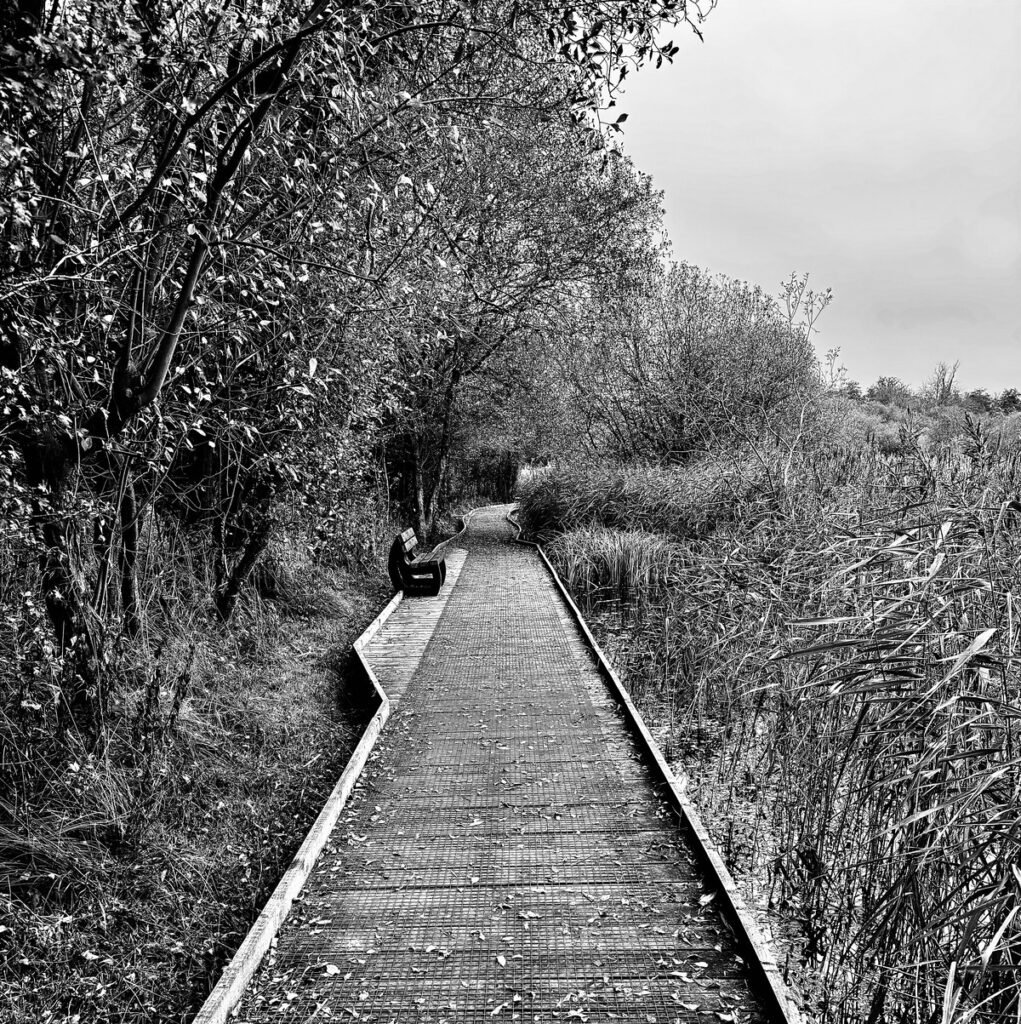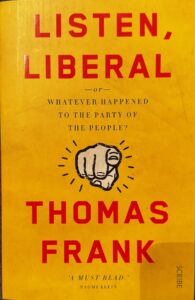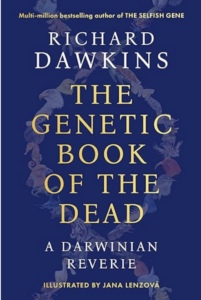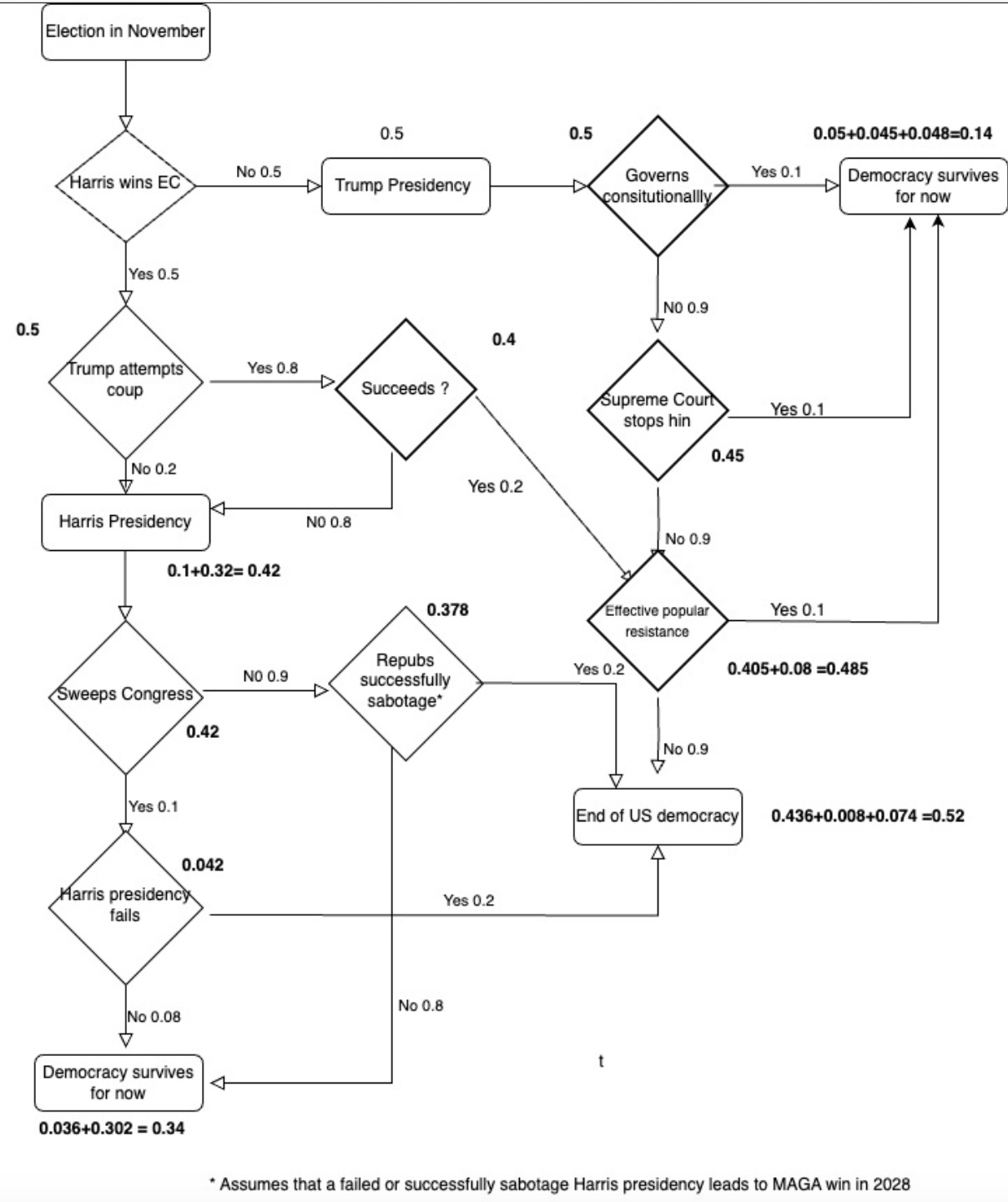Walking the planks

On a boardwalk in an RSPB reserve, yesterday.
Quote of the Day
“Moral seriousness in public life is like pornography: hard to define but you know it when you see it.It describes a coherence of intention and action, an ethic of political responsibility. All politics is the art of the possible. But art too has its ethic. If politicians were painters, with FDR as Titian and Churchill as Rubens, then Attlee would be the Vermeer of the professional: precise, restrained — and long undervalued. Bill Clinton might aspire to the heights of Salvador Dali (and believe himself complimented by the comparison), Tony Blair to the standing — and cupidity — of Damien Hurst.”
- Tony Judt, in The Memory Chalet
Musical alternative to the morning’s radio news
Taj Mahal Ry Cooder | Statesboro Blues
Ry Cooder (Lead Guitar), Buddy Miller (Guitar), Don Was (Bass), Joachim Cooder(Drums), Tim Lauer(Piano), Taj Mahal (Vocals)
Long Read of the Day
The night after the election before
I woke up in the middle of Wednesday night and couldn’t get back to sleep. So I got up and started scribbling. Here’s the result. It’s long, so if you’re not interested in this stuff, feel free to skip it. After all, I’m no expert, just an interested spectator (aka blogger).
=====
Trump’s victory is being billed the greatest comeback since Lazarus and accordingly he is being retrospectively canonised by the new realists, including the high-class savants of the Hoover Institution, the Economist, the so-called ‘serious’ newspapers, etc. They may, of course, be holding their noses as they do it, but they all regard his election as a pivotal event, which it undoubtably is. Accordingly, the party line of the ‘new realism’ is that we all have to adjust to that reality. Trump may be a son-of-a-bitch, but at least he’s our SOB. (Which remains to be seen. To me he looks like his own SOB: the rest of us don’t figure in his narcissistic universe.)
More worrying is the fact that he is now being feted as a political genius — the guy who intuited the ‘real’ nature of the’ real’ Americans: white racists, misogynists and authoritarians. Cue Adolf Hitler. But whereas Hitler reshaped the German people into the master-race Herrenvolk, Trump merely intuited what his’ Volk’ were like and celebrated (and exploited) it.
The inescapable conclusion I had reached from watching videos of some of his rallies was that Trumpism had most of the hallmarks of a cult. He’s the leader who can do no wrong – except to those defined as the “enemies of the people”. So, to his followers, Trump has many of the qualities of a prophet who will lead his people into the promised land.
His comeback triggers some uncomfortable thoughts. Here are a few:
- The election result reveals how chronically dysfunctional American’ democracy’ has become – and in particular how the vaunted founding principles of the ‘checks and balances’ ensured by the separation of powers between the Executive branch, the two houses of Congress and the Supreme Court, has broken down. Trump now controls all four. Game over.
- Also, we have learned from his first term as President that the unwritten conventions that lubricate the working of functioning democracies are useless in the face of an authoritarian who chooses to ignore them. Peter Hennessy’s ‘Good chap theory of government’ no longer applies.
- Trump’s success confirms what critics like Thomas Frank pointed out decades ago – that the Democrats had lost touch with the people whom the party ostensibly represented – and became instead an enabler of the elites who were the beneficiaries of a neoliberal society. In that sense Hilary Clinton was the most inappropriate candidate imaginable in 2016, and Kamala Harris had some of the same disabilities in 2024.
- There’s something in the theory that Joe Biden’s cussedness in wanting to run again made Harris’s task impossible. But my hunch is that even if the Democrats had had a ‘normal’ process with primaries etc. they might not have beaten Trump. In any event, that’s now just an interesting but irrelevant counterfactual.
- All the passionate, grief-stricken expressions of determination to ‘restore’ or ‘rescue’ democracy in America are doomed to fail without a recognition that Trump’s win was actually a ‘democratic’one. It seems to have been a fair and legally-sound election. (I read somewhere that the alt-right sites which had been incessantly relaying the charge that the election would be ‘stolen’ by the Democrats suddenly went quiet when it became clear that Trump was going to win!)
- The underlying problem – the reason why Trump’s campaigning rhetoric fell on such fertile ground – lies deeper. It is that American democracy has been twisted out of recognition by the economic system to which it is in thrall. The fact that the neoliberal thinking — to which Western governments have been addicted for decades — produces gross social inequality is not an externality; it’s what the system is designed to do. Or, as geeks say, it’s a feature, not a bug.
- In that context the British economic sage Martin Wolf published an interesting book a few years ago based on a metaphor: that the relationship between democracy and capitalism is a marriage – and, like all marriages, it has its ups and downs. In the decades since 1970, it’s been mostly downs. In fact the marriage has become a chronically abusive one, with democracy being bent out of shape to facilitate the needs and priorities of the exploitative partner. Which is why bleating about ‘restoring’ the ‘democracy’ that Trump now threatens is just that – bleating. Much more fundamental change is needed.
- The big question, therefore, is whether this latest dramatic lurch into authoritarianism by the world’s most important democracy can be reversed. We need to adjust to the unpalatable thought that Trumpism may be a longer-term phenomenon than we think. Although he’s ageing and displaying unmistakable signs of cognitive decay, so we should be paying more attention to J.D. Vance, who is hale and hearty and may be president sooner than we think.
- Can liberal democracy be saved? In principle, maybe. But it would require pretty radical changes to revitalise democracies that have been hollowed out by capitalism. And democracies are slow-moving beasts, as David Runciman pointed out years ago. More ominously, though, history suggests that fundamental social change happens only through two processes — revolution or war. The explosion in liberal democracies that we have grown up with was a reaction to the cataclysmic horrors of the Second World War, as Tony Judt demonstrated so vividly in his book Postwar: A History of Europe since 1945. It has become our ‘normal’, something to be taken for granted. But what we are now discovering is that it’s much more fragile than we realised. And it may not last.
- Which leads to a really nightmarish thought. If humans endure for another millennium, might future historians looking back at our period see the post-war proliferation of liberal democracies not as an enduring phenomenon, but as a statistical blip in the history of governance? So might it be time to begin re-reading Thomas Hobbes?
- The fevered speculation about what Trump will do when he takes office in January is already in overdrive. He has said really wild things during the campaign — including proposing to round up and deport 20 million ‘illegal’ immigrants, prosecuting and imprisoning Joe Biden and the former Chairman of the Joint Chiefs of Staff, firing tens of thousands of civil servants and so on. Some people have taken comfort from the thought that much of this stuff is too wild to be realistic. After all, as a friend put it to me, “last time he wasn’t able even to build that bloody wall!”.
- As Francis Fukuyama put it in the FT at the weekend, “The real question at this point is not the malignity of his intentions, but rather his ability to carry out what he threatens.” It would require, for example, “years of investment in the infrastructure necessary to carry it out — detention centres, immigration control agents, courts and so on.” And then I open the Sunday Times yesterday and find the front page story on how the guy Trump proposes to put in charge of the operation describes his plans for carrying it out. And then I remember from reading Richard Evans’s fascinating new book that the original Nazi idea in the 1930s was to force Jews to emigrate, and it was only when that proved slow and inefficient that they built an infrastructure for achieving the same objective by different means.
- Predicting how Trump’s second term will play out is a mug’s game, but there is one racing certainty: there will be tariff wars which will have predictable consequences, most of them bad. And interestingly, this is not because Trump — as Will Dunn puts it in the New Statesman — has “bought a copy of Eighteenth-Century Mercantilism For Dummies” but because just about the only issue on which he has been consistent since he first broke cover in the 1980s is… tariffs. “This is the thread”, wrote Janan Ganesh in the FT, “that runs through his more than four decades on the public record: an intense belief that to run a current account deficit with another nation is to ‘lose’ to it.” And now he believes that by imposing much higher tariffs on imports he can force companies to return manufacturing jobs to the US — which is bad news for the UK, whose biggest single trading partner happens to be the US. (The EU is, of course more important, but that’s a trading bloc.)
Er, that’s it. If you have been, thanks for reading.
Those images of Spain’s floods that went viral
Yesterday’s Observer column:
My eye was caught by a striking photograph in the most recent edition of Charles Arthur’s Substack newsletter Social Warming. It shows a narrow street in the aftermath of the “rain bomb” that devastated the region of Valencia in Spain. A year’s worth of rain fell in a single day, and in some towns more than 490 litres a square metre fell in eight hours. Water is very heavy, so if there’s a gradient it will flow downhill with the kind of force that can pick up a heavy SUV and toss it around like a toy. And if it channels down a narrow urban street, it will throw parked cars around like King Kong in a bad mood.
The photograph in Arthur’s article showed what had happened in a particular street. Taken with a telephoto lens from an upper storey of a building, it showed a chaotic and almost surreal scene: about 70 vehicles of all sizes jumbled up and scattered at crazy angles along the length of the street.
It was an astonishing image which really stopped me in my tracks. Not surprisingly, it also went viral on social media. And then came the reaction: “AI image, fake news.”
My commonplace booklet
The Berlin Wall Never Fell
We (me included) often use the phrase “after the Berlin Wall came down” as shorthand when writing about Gorbachev, the end of communism, the collapse of the USSR, etc. So this blog post by the historian Timothy Snyder comes as an embarrassing reproof.
In summer and autumn 1989, amidst Gorbachev’s perestroika and reforms and gestures among neighboring communist countries, East Germans were finding ways to visit or to emigrate to West Germany. The East German regime, in turmoil itself amid protests, was trying to formulate a new set of rules for the border. Amidst a great deal of confusion, a regime spokesman seemed to announce, in response to a question by an Italian journalist, that the border posts at the wall would allow East Germans to depart for the West.
That was on November 9th, 1989. The Berlin Wall did not topple over because of that press conference. What happened was that tens of thousands of East Berliners took advantage of the pronouncement and crowded the border checkpoints, one of which eventually opened. People rushed through to forbidden West Berlin, where they were greeted with champagne and flowers. It was a night that changed the history of Germany, which would unify less than a year later.
But no wall actually fell. People eventually clambered on it, and chipped off pieces of it…
They did, and I have a piece of it on the window-sill of my study as I write this. It was given to me by a journalistic colleague who had been sent to Berlin by our newspaper to report on the story. Sigh.
This Blog is also available as an email three days a week. If you think that might suit you better, why not subscribe? One email on Mondays, Wednesdays and Fridays delivered to your inbox at 6am UK time. It’s free, and you can always unsubscribe if you conclude your inbox is full enough already!









